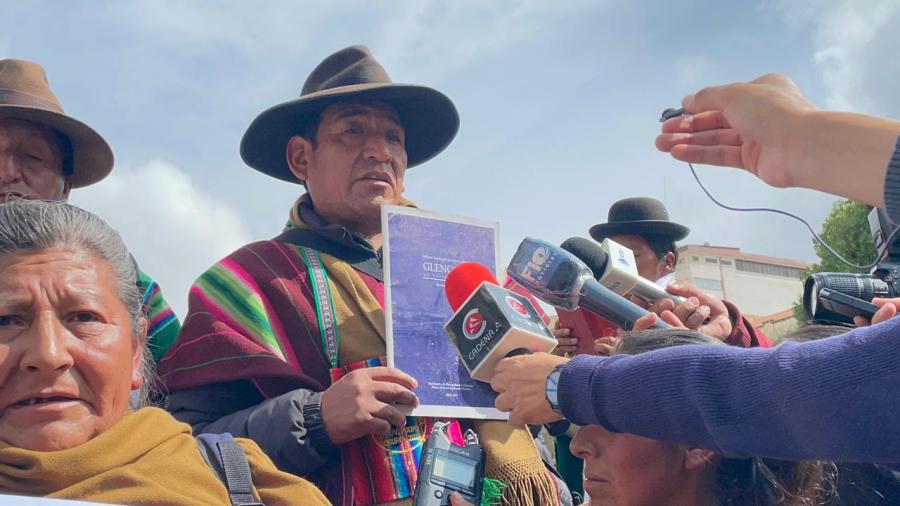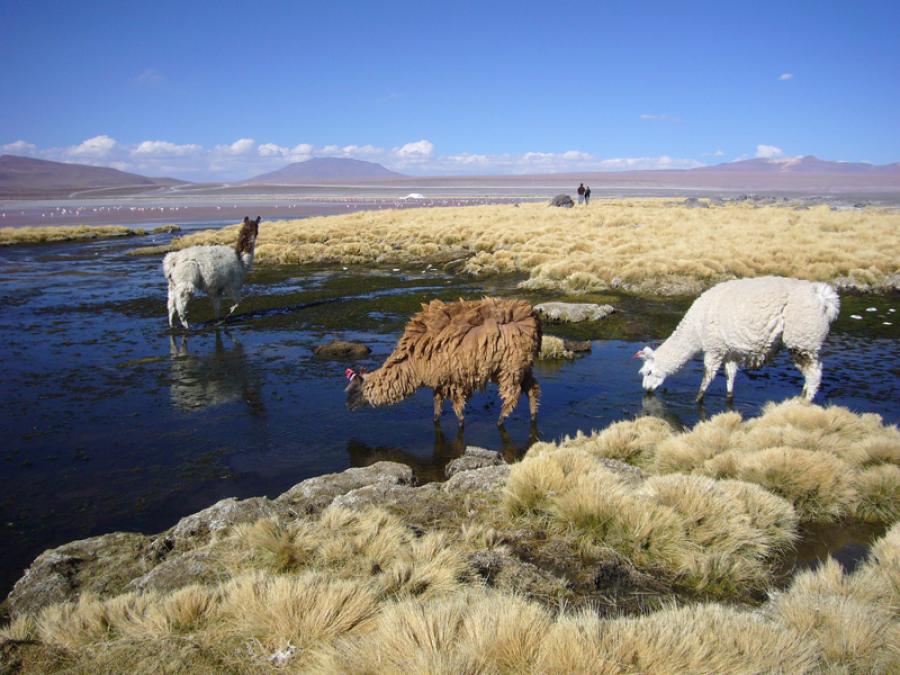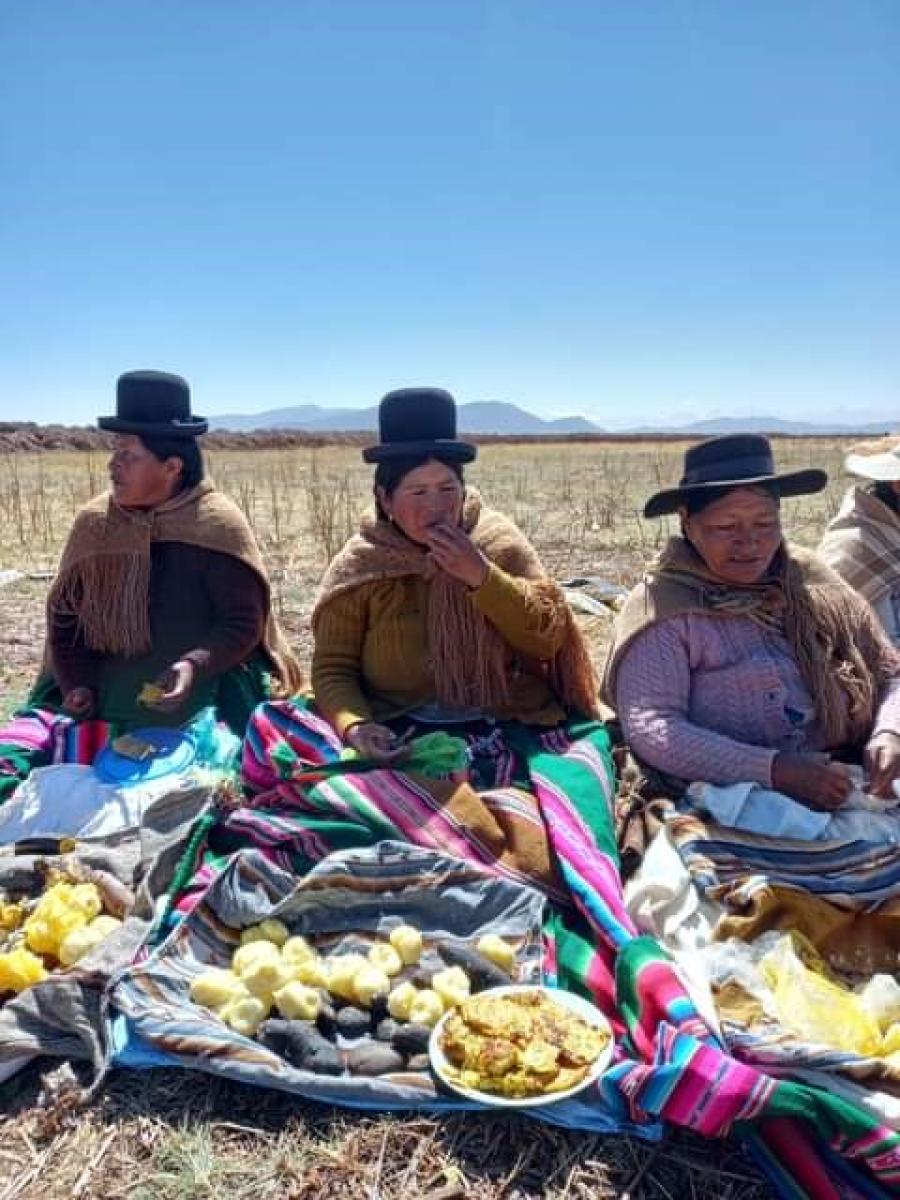
By Verónica Aguilar (Mixtec, CS Staff)
The Katari River in Bolivia runs 90 kilometers and empties into Lake Titicaca at the point where Tiquipa, an Aymara settlement, is located. Due to its location in the Chojasivi Canton, Los Andes Province, and at an altitude of 3,800 meters above sea level, this community protects one of the most important ecosystems in the region. However, pollution of their river and lake has created an environmental emergency.
The Katari River is one of the most polluted in the department of La Paz, as it collects wastewater and garbage from the cities of El Alto and Viacha. The water and soil quality in its basin have deteriorated due to urban, industrial, mining, and livestock activity. The discharge of solid and liquid waste into the rivers of the basin leaves large amounts of chemical and biological contaminants. The levels of eutrophication of Lake Titicaca exceed its capacity for regeneration.
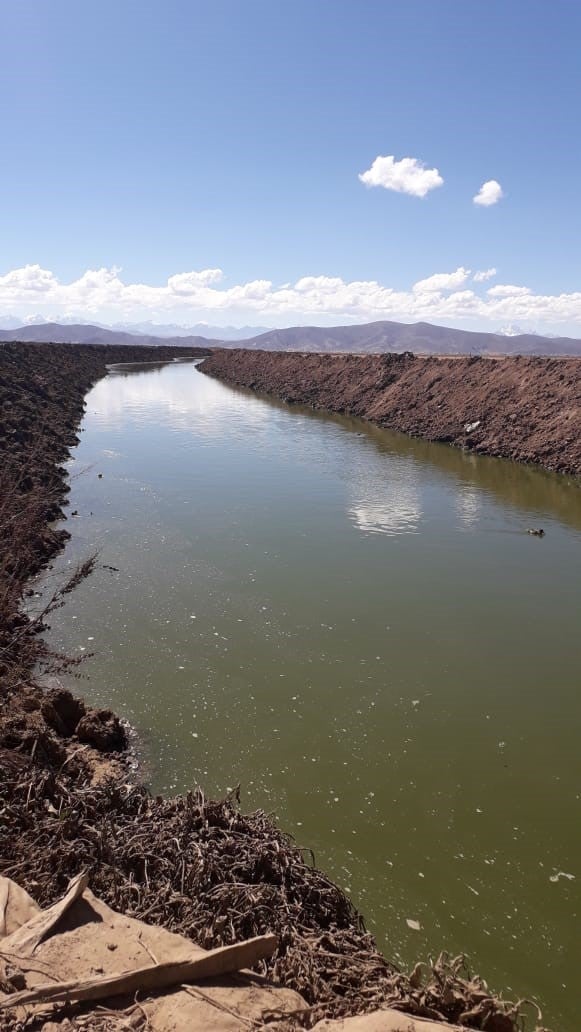
Pollution has led to a loss of environmental quality in urban areas and a reduction in agricultural productivity in rural areas, which in turn deteriorates the quality of life and health of small producers and their families. This threatens the physical and cultural survival of whole communities since pollution affects fishing and agriculture, activities that are central to Indigenous livelihoods and cultures. “Before, we lived on what came from Lake Titicaca, on the fish, on the birds that lay eggs...and on the reeds. Now, as the river is polluted, so are our pastures. We have lost everything, everything has died,” says Don Braulio Laruta, Secretary General of the Tiquipa community.
In recent years, during the rainy season, the river flow has increased and flooded the land, affecting crops and livestock. The overflow of the contaminated waters of the Katari also damages another river, the Allita Jawiram, which is located in the community of Tiquipa. In this way, the Katari River not only cuts off access to cultivation areas but also degrades the livelihoods of the Aymara community.
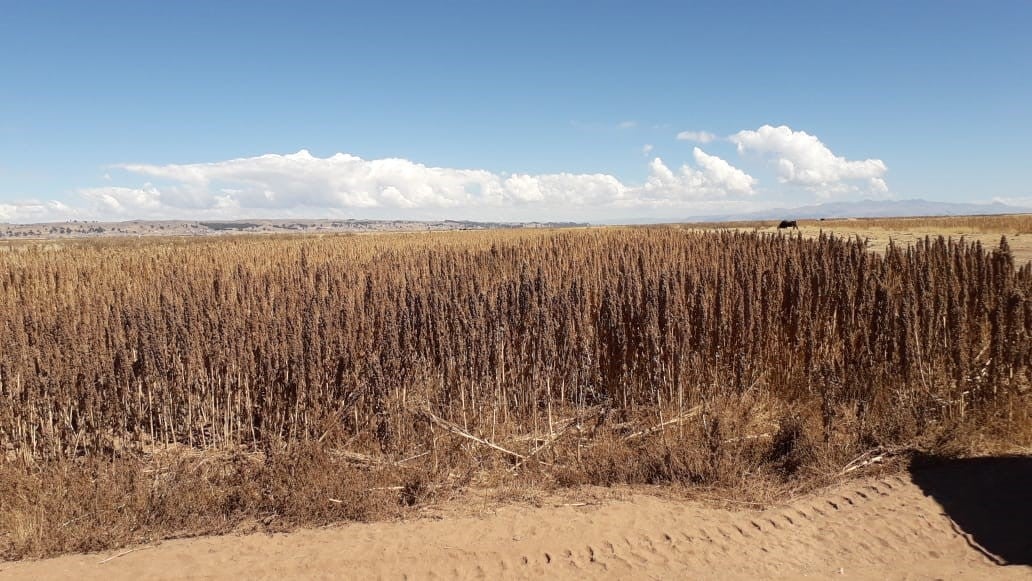
Pollution has caused many people in the community to alter their daily activities. Some have left fishing to concentrate on agriculture; others have left agriculture to raise sheep and cattle. Recently, however, pollution has also begun to affect the health of livestock, reducing the options for economic income for families. “[Cattle die] of contamination by drinking or by swallowing plastic waste, even syringes that are brought down the Katari River. Because of this, many young people have decided to leave to seek better days escaping from the community,” one community member laments.
Faced with this difficult situation and with the lack of government action, members of the Aymara community of Tiquipa organized to develop alternatives. With the help of a grant from the Keepers of the Earth Fund, the community was able to complement the work they do collectively, assembling gravel and sand and renting a backhoe and dump truck to build a physical barrier to prevent the flooding of their crops and the road by which they commute.
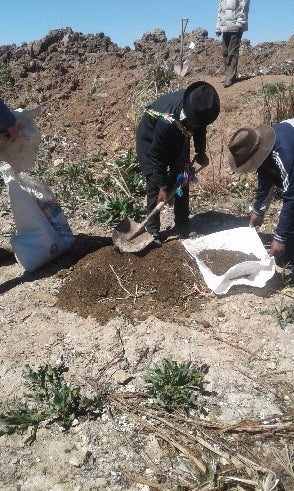
More than 360 people have benefited directly from this project. Most of them work in agriculture, livestock raising, fishing, and forestry. Another 10,000 people affected by contamination in the municipality of Pucara will also indirectly benefit, since the project includes an awareness raising campaign about the situation caused by pollution in the area.
The Tiquipa community is determined to continue to protect Pachamama and Mama Q'uta (Mother Lake), carrying out concrete actions in the short term. The possible long-term solutions that have been identified, such as decontamination and construction of treatment plants, are expensive and will take a long time to produce results, leaving their inhabitants vulnerable to annual flooding in the meantime.
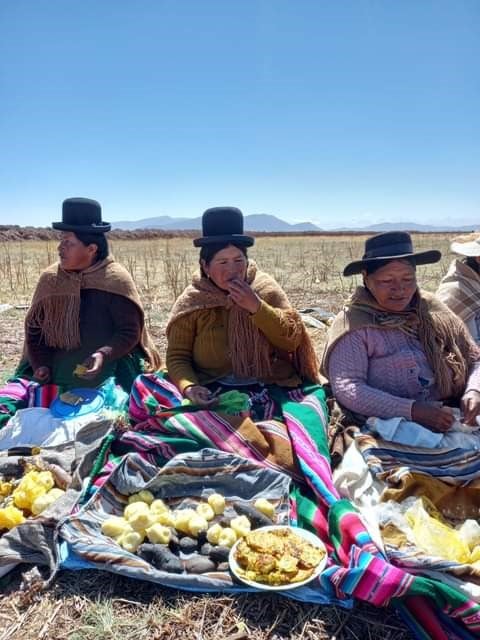
In 2021, the Tiquipa received a grant from the Keepers of the Earth Fund, an Indigenous-led fund at Cultural Survival designed to support Indigenous Peoples’ advocacy and community development projects globally. Since 2017, we have supported 238 projects in 38 countries through small grants and technical assistance, totaling $1,070,602. The funds go directly to Indigenous communities, collectives, organizations, and traditional governments to support projects designed by the communities and in accordance with their Indigenous values. Based on the United Nations Declaration on the Rights of Indigenous Peoples, we at Cultural Survival use a rights-based approach in our grantmaking strategies to support grassroots Indigenous solutions through the equitable distribution of resources to Indigenous communities.
